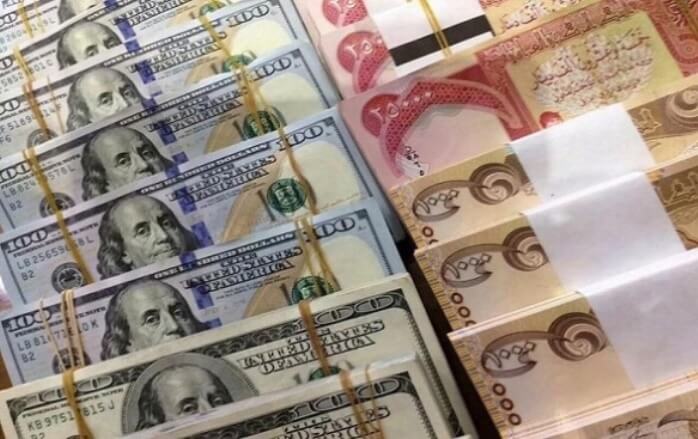U.S. Federal Reserve imposes tight controls on Iraqi banks’ transactions

Packs of US dollars and Iraqi dinars. Photo: Pukmedia
Baghdad (IraqiNews.com) – In light of the difficult economic crisis that Iraq is going through, especially with the rise in the exchange rate and the subsequent repercussions that greatly affected the lives of citizens, U.S. officials revealed that the depreciation of the Iraqi dinar and the rise in the prices of foodstuffs and imported goods is caused by the remarkable change in the policy adopted by the U.S. Department of the Treasury and the Federal Reserve System in New York towards Baghdad.
U.S. and Iraqi officials said that the New York Federal Reserve System began enforcing tighter controls on international dollar transactions by commercial Iraqi banks in November in a move to curtail money laundering and the illegal siphoning of dollars to Iran and other heavily sanctioned Middle East countries, the Wall Street Journal reported.
Last November, the Federal Reserve System began imposing stricter controls on the transactions of Iraqi commercial banks, which had been operating under less stringent rules since the U.S. invasion in 2003.
The Federal Reserve System stressed that the time has come to bring the Iraqi banking system into compliance with international money transfer practices.
Since the adoption of the new procedures, 80 percent or more of daily dollar transfers to Iraq have been banned, noting that these transactions used to be more than 250 million USD per day.
The value of the Iraqi currency has fallen by up to 10 percent against the U.S. dollar, which led to a sharp rise in the prices of imported goods, including basic commodities such as eggs, flour and cooking oil.
U.S. officials confirm that the strict rules for electronic dollar transfers by Iraqi private banks were not surprising to officials in Baghdad, but rather have been implemented jointly since last November, after two years of discussions and planning between the Central Bank of Iraq and U.S. authorities.
